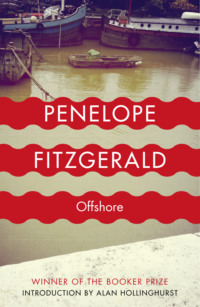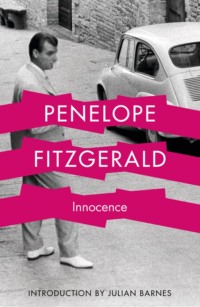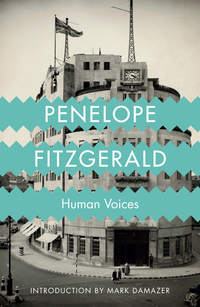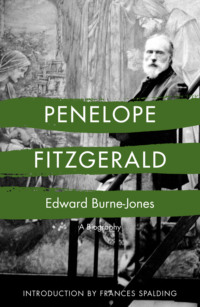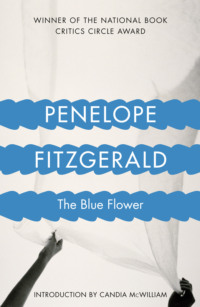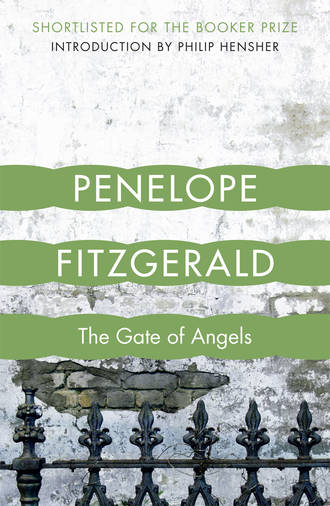
Полная версия
The Gate of Angels
The first note was from the Master. The writing sloped a good deal downwards, but it was clear enough. ‘I have to apologise to you for saying, or implying, just now in the court, something that was not true. I asked you who you were, but I, of course, knew who you were. I know the voices of everyone in the college. I also know their steps, even on the grass – particularly on the grass. Normally you cross the court directly from the SSW to the NNE, but this evening you did not do this. You must have walked a little up the gravel path, and that confused me. My remark, I am afraid, reflected something of my annoyance at that confusion.’ The Master was fond of sending these notes in the interest of truth, or rather with the intention of going to bed every night in the knowledge that he had neither said or written anything untruthful which he had not corrected. For the Master, it was a very short note. And Fred had learned to live among these people and indeed (as with the cold in his room) already found it difficult to imagine anything else.
The second note was from Skippey, who must have dropped it in to the lodge on his way back to his own college, Jesus. It read, ‘Dear Old Fellow, I don’t think you heard me just now on Mill Road. Thorpe has let us down to-night on the Disobligers’ Society. He says he is ill. He calls it influenza, and we call it letting us down. It’s lucky that you’ve recovered from your accident, because we want you to speak for us in the debate to-night. We want you to speak against the motion. The motion is “that the soul doesn’t exist, has never existed, and that it isn’t desirable that it should exist”. Charles Reding is going to propose the motion. The point is that he’s a theologian, and a pious fellow, and so on, and so of course he’ll have to say that there’s nothing we can be sure of except the body, and that thought is blood, and so on, and then you, Fred, as a rank unbeliever, will have to stick up for the soul. Afterwards, wine and biscuits. And, Fred –’ Beazley was still hanging about. Fred asked him: ‘Did the Master want an answer to his note?’
‘He didn’t ask for one, Sir.’
I’m a disappointment to Beazley, Fred thought. Steaming socks, making toast, though a lot better, mind you, than he makes it himself – where’s the dash, where’s the display? Although after the first glance he must have given up all hope of making any substantial amount of money out of looking after me – still, there he is, and I like him, oughtn’t I to entertain him a little?
‘It seems as if I’ve got to go out and make a speech, Beazley. It was raining, and I’m just drying out. Do I look untidy?’
‘Yes, very untidy, Mr Fairly.’
Beazley went out, quite well pleased, shutting the four-inch oak door, which deadened the sound of his steps as they descended the winding stairs.
Fred looked at his watch. It was a silver watch, belonging to his father, given to him when he took up his appointment, and yet not quite given to him either, since when he went back on vacations his father tended to borrow it back. It came to him that he didn’t at all want to go out again to-night, that he had a letter of his own to write which must go off – must – but on the other hand he ought not to disoblige the Disobligers’ Society. This was because he had once done Skippey a good turn, something to do with money, a temporary loan, and you are always under an obligation to anyone you’ve helped once. But his mind had not warmed up at the same rate as his body, and he was not able to think, still less to put in order, what he could possibly say in defence of the soul.
The third note, in the envelope that was not so clean, consisted of a couple of pages torn out of a note-book. It was from an acquaintance. Fred couldn’t remember where he had first met Holcombe, or why, having met him but not ever much wanting to see him again, they now considered themselves acquaintances. It was on a subject they had been talking about a couple of days ago. Holcombe must have thought of something else he wanted to say, gone to the lodge, found that Fred had signed out, and immediately started writing, since it would have been as dangerous for him not to express himself as to block his digestive system.
‘… Long tramps, Fairly, over our beloved Fenland, speaking together of intellectual problems and those only, descending at last after say fifteen miles for whisky and a warm at some friendly Cambridge hearth! That is a man’s recreation. Now, if one were to marry – well, look at it in this way – a wife has a legal right to be in the same house and even the same room as oneself! From the point of view of the temptations of the flesh that may be convenient enough, but what if she were to want to talk? Your own position is so much simpler. You don’t have to make up your mind. At the age of twenty-five years, it is made up for you. If you stay at St Angelicus you can’t marry. If you leave, you may get another appointment, but not, you can be pretty certain, another Junior Fellowship. You are choiceless. In fact, you must be careful that your powers of choice don’t fall into disuse. I think of rust, I think of springs becoming weaker. You may find you can’t remember how to choose at all. And yet the prospect of an alternative is absolutely necessary to human will and human action. Still, let us be honest, there seems no point, as far as I can see, in your ever getting to know any young women at all –’
At this point Holcombe had run out of space. When Fred next met him, he would start straight away from where his letter had broken off, as though between words spoken and words written there was no dividing line.
Out of a carved oak locker on the opposite side of the fire from the coal-scuttle, but distinct from the bread-cupboard (and breathing out a different smell of mould when opened), Fred took a few sheets of the college paper. He shook his fountain pen to see how much ink was left in it, and wrote: ‘Dear Miss Saunders’.
2
A Few Words about St Angelicus
ST Angelicus had two great distinctions. One it shared with St Andrew’s University. That was that it had no real existence at all, because its foundation had been confirmed by a pope, Benedict XIII, who after many years of ferocious argument had been declared not to be the Pope at all. Two years after he had been legally elected in 1394 he was told that he was dethroned. By every law of God and man, however, no-one on earth had the right to do this. Kings and emperors can be dislodged, but not legally elected Popes. Benedict, too, was an Aragonese, and one of the most obstinate of an obstinate nation. In 1415 he retreated to a castle built on a jagged rock 64 metres high and linked to the mainland of Castellon by a strip of sand, covered at high tide by the sea. Here, in Peñiscola, he continued to hold audience in the vast halls, furnished with books and the rags of tapestries which he had brought with him. No matter, he was now ninety years old, and must die soon. He did not die, and refused to give way an inch. To settle everyone’s conscience, it was agreed by the Kings of Europe to arrange for him to be poisoned. Benedict had always lived temperately and had only one weakness left, a fondness for quince preserves, which were made for him by the nuns in a convent on the mainland. After enquiry, a Benedictine was found who was an expert at introducing poison into sweets. An attendant was bribed to take these sweets to the Pope’s study. But the old man vomited so hideously that his stomach was cleared. The attendant was arrested, the Benedictine was found guilty and burned alive, and the Pope died five years later, with dignity. He was buried in his home town of Ilueca. During the war of the Spanish succession his body was dug up by French soldiers on the rampage, who cut off the head and threw it away. Rescued from a ditch by an honest labourer, it was preserved as an object of veneration. The Senior Tutor of Angels had in fact made the journey to Aragon to see it, together with Dr Matthews, the Provost of James’s, a very well-known antiquarian. A silver reliquary had been opened for them by special arrangement, and they had been allowed a sight of Benedict XIII’s skull. Both of them had noticed that the right eye was still visible, hanging at the back of the socket in the form of a kind of dark jelly.
‘It was a recognisably human glance, in my opinion,’ the Provost had said. ‘There seemed a spark. Yes, some kind of communication. If we could have seen the whole skeleton, I fancy it would have had its hand over its heart.’ The Chaplain of Angels said later that it had been a mistake for the Senior Tutor to go out to Spain with the Provost, who wrote ghost stories in his spare time, and read them aloud, and who was nothing but an old woman when it came to bones and graveyards. ‘And what the two of them must have suffered! You know that in Spain they put pieces of potato in the omelettes. And. then, to go on mule-back!’
‘I think they took a local train from Zaragoza,’ someone corrected him.
‘A Spanish train! Worse, much worse,’ said the Chaplain.
The second distinction of Angels was its size. It was the smallest college in Cambridge, and had never shown any signs of wanting to extend or expand in any direction. It had been built, at the beginning of the fifteenth century, on a plan as unlike a monastery as possible. Although everything was in miniature, it resembled a fortress, a toy fortress, but a toy of enormous strength, with walls 31/2 feet thick, built without rubble. There were no cloisters, no infirmary, no hospice, no welcome (to be honest), to those, strangers or not, arriving from outside, no house apart for the Master, who crowded in on an upper floor along with the Fellows, an arrangement which had caused him to be known in the old days as Master Higgledy-Piggledy. As time went by, more openings in the roof were grudgingly allowed for chimneys, and fireplaces were built in the rooms, and one cold water tap on each landing. As to the students, in 1415 none of the colleges had anywhere for them to sleep, and St Angelicus, in 1912, still hadn’t. There were no hostels for them either. They had to find their own lodgings, and six o’clock in the evening took the last of them away, like roosting birds, their chatter fading into the distance, after which they were forgotten till the next morning. There was no room in the court for their bicycles, which had to remain stacked outside the Great Gate. Over the gate the heraldic arms, weathered almost flat with the wall, showed two angels asleep, waiting for the Day of Judgement when Benedict XIII will be shown at last to be indisputably right, and all the proceedings of the Catholic Church since 1396 will be annihilated and trodden into the dust, for all of them have been made on false authority. The motto, Estoy in mis trece, not altogether suitable for a place of learning, was one of Benedict’s few recorded remarks. It is translated as ‘I have not changed my mind’, but ‘nothing doing’ might be nearer.
The college, then, had learned the art of living in a small space. There were the cellars, of course, and these extended beyond the college buildings themselves, some way underneath Butts Green. 1911 had been a good year for hock and champagne, and Angels had laid in considerable supplies, and were debating whether to burrow even further and to construct another vault. But, above ground, there were only the Master, the college servants and six Fellows. In other colleges the Fellows for the past thirty years had been allowed to marry and live out, but in the statutes of St Angelicus this was forbidden. The number of problems which, in consequence, did not need discussing resulted in a great saving of time, but labour, too, had to be saved. The Junior Fellowship which Fred had been granted meant combining the jobs of assistant organist, assistant librarian, deputy steward, and assistant deputy treasurer. The words assistant, deputy, and so forth didn’t mean that there was necessarily anyone above him to do the work, only that he must do it without being paid.
3
How Fred Got this Job in the First Place
FRED had taken the science tripos, and at a gathering for those who had been awarded a First Class degree he had met Professor Flowerdew. There had been music and refreshments in the open air, ruined by a downpour, as often happens in Cambridge, where the rainfall is believed to be low and risks are taken again and again. Everyone had taken refuge in the Cavendish, where Professor Flowerdew, who did not like parties (still less when they were called gatherings) had been all the time. He was just retreating from the physics laboratory, and with one melancholy sideways movement of his head he invited Fred upstairs to his office. This (like most of the rooms, after all) was dark, and reached by a dingy corridor. The walls were covered with photographs, and more photographs were pinned onto the desks. Fred sniffed the air. It was his ambition to have, one of these days, an office in the Cavendish.
Flowerdew sat down at the desk, leaving the stool near the microscope, and said to Fred, ‘What do you know about me?’
‘I’ve only just finished my first degree,’ Fred replied. ‘Truly, I don’t know anything.’
‘Well, I know something about you. Yes, something. I know you’re a bright fellow. I know you come from a rectory family. They say that at the Cavendish we have to make do with apparatus knocked up out of cardboard and string. But if you come from a rectory you’ll be used to economies.’
‘It’s a great thing you’ve even heard of me at all,’ said Fred.
‘And what next?’
‘I had thought of asking Professor Wilson whether I could work with him. I mean in some capacity. I could help with the photographic plates, perhaps. He was my tutor for advanced practical physics.’
‘C.T.R. Wilson. A very good, very patient Scotsman. Could you read what he wrote on the blackboard?’
‘Usually not. He used to write it with one hand and wipe it off at the same time with the other. But if I had the chance to study his methods –’
‘You want to assist him with the construction of his third cloud chamber. You want to photograph the alleged tracks of ionising particles.’
Fred turned red. ‘These are wonderful years in Cambridge.’
‘You are attracted towards atomic research?’
‘I’ve seen Ernest Rutherford walking into the Cavendish,’ Fred cried. ‘I heard his lectures. It all hangs together. If it works it must be true.’
‘Well, well,’ said Professor Flowerdew. ‘I expect it will hang together for a considerable time, perhaps sixty or seventy years. The belief that Nature, or an invisible god, created the world and assigned everything for a purpose, lasted very much longer than that and worked reasonably well. But we’ve given all that up, because we’ve got no evidence that God or Nature exists.’
‘None at all,’ said Fred. ‘That has to be left to faith. After all, you can only reason from what you can observe.’
‘Quite so,’ said Professor Flowerdew. ‘But atoms are unobservables.’ He pointed to one of the photographs on the wall.
‘Who is that?’ he asked.
Fred floundered, looking at the bearded, enigmatic faces, one of which had been circled in red ink. There were distant men in frock coats and top-hats, standing outside a building he did not recognise.
‘That is Ernst Mach, a photograph taken in Vienna on the occasion of his retirement from the University Chair of physics. I used to be in correspondence with him, now I no longer am. It was from his lectures and his Science of Mechanics that I came to understand the folly of basing any kind of scientific research on unobservables. Mach, don’t forget, is a very deeply respected physicist. He has established, among many other things, the relationship between the speed of objects and the local speed of sound. But in respect of the atom, Mach said to the world, don’t commit yourself to it! An atom is not a reality, it is just a provisional idea, so how can we say that it is situated in space? We ought to feel suspicious of it when we find that it has been given characteristics which absolutely contradict those which have been observed in any other body. There is a continuity of scientific thought, you know. The continuity is now being thrown out of the window. Let us hope we shall remember where it is when, at long last, we find that we can’t do without it.’
He looked compassionately at Fred. ‘You’re hungry. But it’s of no use going down now, the Science Faculty will have eaten everything. The organic chemists will have cleared the sandwiches. Let me tell you what is going to happen, over the coming centuries, to atomic research.
‘There will be many apparent results, some useful, some spectacular, some, very possibly, unpleasant. But since the whole basis of the present research is unsound, cracks will appear in the structure one by one. The physicists will begin by constructing models of the atom, in fact there are some very nice ones in the Cavendish at the moment. Then they’ll find that the models won’t do, because they would only work if atoms really existed, so they’ll replace them by mathematical terms which can be stretched to fit. As a result, they’ll find that since they’re dealing with what they can’t observe, they can’t measure it, and so we shall hear that all that can be said is that the position is probably this and the energy is probably that. The energy will be beyond their comprehension, so they’ll be driven to the theory that it comes and goes more or less at random. Now their hypotheses will be at the beginning of collapse and they will have to pull out more and more bright notions to paper over the cracks and to cram into unsightly corners. There will be elementary particles which are too strange to have anything but curious names, and anti-matter which ought to be there, but isn’t. By the end of the century they will have to admit that the laws they are supposed to have discovered seem to act in a profoundly disorderly way. What is a disorderly law, Fairly?’
‘It sounds like chaos,’ said Fred.
‘The chaos will be in their minds only. It, too, will not be observable.’
‘What do you think is to be done?’
‘Admit the wrong direction, and go back to what can be known through the senses. If they don’t depend on true evidence, scientists are no better than gossips.’
Professor Flowerdew had, he said, been fortunate. The university during the last ten years or so had been surprisingly ready to create – by Grace, to use their own terms – posts, and even professorships, which would last only for as long as was thought necessary. There were, for instance, travelling bachelorships ‘for the encouragement of investigation into foreign countries’, established by the Special Board for Military Studies – scholarships in other words for spies. As a kind of counterweight some of the appointments had no apparent practical use whatsoever. Herbert Flowerdew had been offered a temporary Professorship in Observable Experimental Physics.
Fred was shocked by the word ‘fortunate’. He felt that luck and chance should have no place in science, and above all at the Cavendish.
‘The Cavendish is becoming very crowded,’ said Flowerdew. ‘There is a pot-house atmosphere. I have arranged to have a small laboratory of my own in the Department of Mechanical Philosophy.’ His own experiments were in the principles of equivalence and reciprocity. He couldn’t, then, be altogether cracked.
But was it, Fred broke out in distress, that he had no interest in the work of Wilson, and Rutherford, and Planck, and Niels Bohr, whose almost inaudible lectures Fred had also heard that year?
‘Not at all. I follow all that they printed with great interest, both through the German and the English journals. I am impressed with their results. I admire their great talents. But when I think of their future I hear the sadness of old men and those whom the gods have deserted.’
Flowerdew needed an assistant at £100 a year, which he would pay himself, to instruct his students in physics and take them off his hands generally. He could guarantee this assistant, too, a Junior Fellowship at St Angelicus. There was a vacancy in the college, not through death, but through a lecturer in Propellant Explosives being unexpectedly recalled to Germany. In explaining this Flowerdew made it quite clear that the Junior Fellow would also have to lend a hand with the library, the catering and the accounts, act as assistant organist, and keep the collection of fifteenth-century musical instruments in repair and, as far as possible, tuned. Here Fred jibbed.
‘I can’t do that. All I could ever do was to help out at home with the hymns. I’ve never even seen a fifteenth-century instrument.’
‘Let us forget them for the moment. Don’t answer me now. Think it over.’
By ‘don’t answer me now’ Flowerdew had meant, ‘don’t accept straight away because you’re a scholarship boy from a rectory with nothing to live on.’ Fred was struck by this, and by other things which the Professor was not doing. He was not, like the great ones of Cambridge, keeping a princely look-out for young followers. He wasn’t asking Fred to agree with him, either, about the unsoundness of atomic physics; not that. Clearly he was a lonely man, but he had made nothing of his loneliness, either. And there was a lack, not of self-confidence, but of self-assurance, in all this, that Fred liked. He was not vain himself, and only the humble can value humility. It appealed to him, too, that Flowerdew stood as one against many, not because he knew too little, but because he understood too much. ‘Stood’ was not the right word, though. He was no more likely to make a stand than Fred’s own father, gazing out of the window at the Rectory.
Without seeing Flowerdew again, Fred went home to the Rectory, where he was asked by the neighbours (called in to celebrate his First Class in physics) what he expected to do next, and, by the Rural Dean, whether he was going to blow them all up. Then Fred went with two of his friends for a walking holiday in Austria. For the first time in his life he felt he had no obligation to anyone. They went to the Salzburg Alps. At Bruckmann’s Hotel, by candlelight, the two waitresses and the daughter of the house appeared at the door of the three-bed commercial travellers’ room which they had taken for cheapness’ sake. Fred was the only one not asleep. The situation struck him as like a folk tale. He woke his two friends, and went down with the daughter, who had the keys, to fetch two bottles of wine from the dining-room. More she dare not take. When they got back upstairs the others were all sitting stiffly on the edge of the beds, not undressed, not even speaking, as though waiting for permission to begin. Fred found it hard not to laugh, then they all laughed. The wine was Grüner Weltliner, tasting violently of pepper. They blew out the candles and opened the shutters, to let the stars shine in. The room smelled of the just extinguished candlewicks, of the peppery wine, of strong young women’s flesh and of starch, because the maids had been doing the ironing.
Next morning they went on and up the mountain to the haymeadows, past the first rocky slopes where the wild raspberries were almost over, through ice-cold shadow into the sunlight of the upper slopes and almost to the edge of the glacier. They sat down, and the elder of Fred’s two friends, who was a chemical engineer, told them that he was going back to Bruckmann’s, as he had fallen in love with one of the waitresses. They had their valises with them. He picked up his, took his stick and walked away down the path, the stones slipping away beneath his boots. The remaining friend said that he was doing all he could to get to Manchester, in the hope of training with Rutherford. Fred must come too, everything of importance was happening in Manchester.
‘No, I’m going back to Cambridge. Herbert Flowerdew has offered me a post as his assistant.’
The friend burst into tears. He had been working far too hard and for too long. He regarded Fred as lost. ‘You never said anything about this before.’
‘I’ve only just decided to accept.’
‘Come to Manchester.’
‘I’ve decided to accept.’


